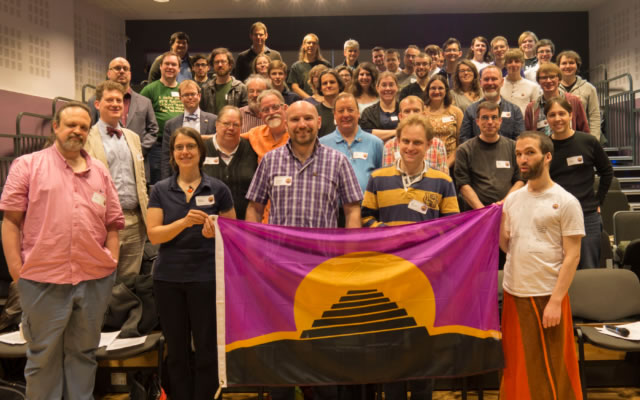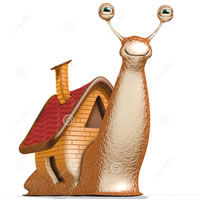
Here’s a recording in a mystery language.
Can you identify the language, and do you know where it’s spoken?

Here’s a recording in a mystery language.
Can you identify the language, and do you know where it’s spoken?
Yesterday I learnt an interesting French word – huissier [ɥi.sje], which means baliff, usher, process server, catchpole or tipstaff.
It is an abbreviation of huissier de justice, an officer of the court who serves process and notices, seizes and auctions off property, and executes garnishments, levies, and evictions.
It comes from the Vulgar Latin *ustiārius, from ostiārius (porter, doorman), from ostium (door, entrance, estuary).
Related terms include:
You may be wondering, what’s a catchpole or tipstaff? I certainly am. I know a family called Catchpole, but don’t know what the word means.
Catchpole is an obsolete word for “A taxman, one who gathers taxes; A sheriff’s officer, usually one who arrests debtors.” It comes from the Old French chacepol (one who chases fowls).
Tipstaff is “A ceremonial staff, with a metal tip, carried by a constable or bailiff etc as a sign of office; An officer, of a court etc. who carries such a staff.”
Sources: Reverso, Wiktionary
| français | English | Cymraeg |
|---|---|---|
| le radeau | raft | rafft |
| flotter sur un radeau | to raft | rafftio |
| la tortue (de mer) | (sea) turtle | crwban y môr; môr-grwban |
| huissier; agent de poursuite | bailiff | beili |
| le porche | porch | porth; cyntedd; portsh |
| le comprimé; le cachet | pill | pilsen; pelen |
| le dessert | dessert | melysfwyd; danteithfwyd; pwdin |
| le désert | desert | anial; diffaith; anghyfannedd |
| parfumé; plaisant; agréable | fragrant | persawr; pêr; perarolgus; melys |
| la chambre d’enfants; la crèche; la garderie | nursery | meithrinfal; magwrfa; cylch meithrin |
One way to say remember in Swedish is komma ihåg, which literally means “to come to mind”. It also means to recall; to recollect; to retain, or to bear in mind.
Komma [ˈkɔmːa] means ‘to come, arrive, move nearer’. It comes from the Old Norse koma (to come), from the Proto-Germanic *kwemaną (to come), from the Proto-Indo-European *gʷem- (to step).
ihåg [ihoːg] means ‘to (one’s) mind’. håg means ‘mind, mindset, temper, inclination’, and comes from the Old Swedish hogher, from Proto-Germanic *hugiz (mind; thought; sense; understanding), which is also the root of the English words high, how, Hugh and Hubert.
Related words include:
Other words for remember include:
Are these words for remember used in different contexts?
Sources: bab.la, Wiktionary

Here’s a recording in a mystery language.
Can you identify the language, and do you know where it’s spoken?
A few years ago I went to the 6th Language Creation Conference in Horsham, near London.

I am in the second row, second from the right (next to David J. Peterson)
At the time I had created a few alphabets but didn’t plan to create any languages. However, since the conference I have been dabbling with ideas for a conlang.
The language I’m working on is called Laala. It’s an isolating language, like Chinese, so there are no grammatical inflections. The word order is VSO (Verb, Subject Object), like Celtic languages. Basic words are mostly one syllable. In two syllable words the vowel in the first syllable (if there is one) can be long, e.g. teete (everything) – te = thing. Some consonants can be long as well, such as mm (to like, good, fine, happy), and mmm (to love, adore, joy).
Some words are omomatopeic (they sound something like the thing or action they represent), e.g. zz = sleep; ff = wind, air; and hh = cold.
I try to keep the basic vocabulary to a minimum, like Toki Pona, so many words have multiple meanings, and words are based on simple roots. For example, ss = fire, light; ka = big; ki = small, nu = time, nuu = long time. So sska = sun, sski = moon, sskanu = day, sskinu = night, and nuuka = year.
My aims for this language are to have fun playing with it, to learn more about how languages work, and to create something that sounds interesting when spoken and sung. I don’t expect anybody else to learn Laala, and it certainly isn’t intended as a international auxiliary language like Esperanto.
I have put together a page of phrases in Laala. The phrases may change as the language develops.
In the past I’ve only posted details of conlangs on Omniglot if they are written with an original and interesting alphabet or other writing system. I’m now thinking of creating a separate section of the site, or even a separate site for conlangs and constructed scripts. What do you think?
Have you created any languages that you’d like to see on Ominglot?
Have you ever wondered what you call the long stringy white bits you remove from bananas before eating them?
I haven’t thought about this before, but today I discovered that they are called phloem bundles. They are structures that transport nutrients from the leaves to other parts of plants.
In trees they are the innermost layer of bark, and the word phloem [ˈfləʊ.em / ˈfloʊ.em] comes from the Greek word φλοιός (phloios), which means bark. The word bast is also used as an alternative for phloem.
Source: Huffington Post, Wikipedia, Cambridge Dictionary

Here are some recordings of New Year greetings in various languages.
Do you know which languages they are?
Happy New Year / Blwyddyn Newydd Dda / bonne année / Bliain úr faoi shéan is faoi mhaise daoibh / 新年快樂!

An interesting Swedish I learnt recently is snigelhus, which means shell, or literally “snail house”. Snigel is a snail or slug, and hus is house, case or residence.
The word snigel comes from the Old Norse snigill (snail), from the Proto-Germanic *snagila (snail), from the Proto-Indo-European *sneg- (to crawl, creep; creeping thing), which is also the root of the English words snail and snake.
Some related words include:
Another name for snail is snigel med skal (snail with shell), and another name for slug is snigel utan skal (snail without shell).
So it seems that skal is another word for shell. It also means coat, paring, rind, jacket or peel. A snail’s shell is not snigels snigelhus but snigelskal.
Other Swedish words for shell include:
Sources: bab.la, Wiktionary, Online Etymology Dictionary, and Linguee

I spent the past few days with my sister and her family. Her son is just over 2 and a half years old and is speaking a lot more than the last time I saw him at Easter this year.
He has trouble pronouncing certain sounds, such as r and consonant clusters like st, but at long as you listen carefully, you can usually work out what he’s saying.
He also invents new words, or gives words new meanings. For example, he has several toy monkeys (see below), and calls one ‘monkey’ or ‘daddy monkey’, another ‘other monkey’ or ‘mummy monkey’, and a smaller one he calls monkeykey, which I thought was very cute. He also calls playing cards, dominoes and other parts of games current buns. I’m not sure why.
Up-date: it turns out that I misheard the name of the monkey – it’s actually Monkey Keith not monkeykey.